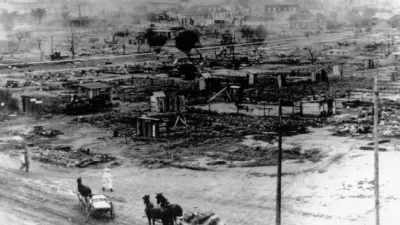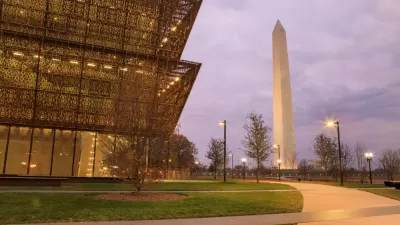In this article, Deneen Borelli argues that elite environmentalists are blocking access to natural resources that are abundant and in urgent need. As a result, higher costs of stricter energy requirements hit poor black communities the hardest.
"Despite the hype about wind power and boasts about other renewable energy sources, 85 percent of our nation's energy comes from fossil fuels. Energy from renewable sources such as wind and solar only currently provide about 7 percent of our power and cannot replace fossil fuels anytime soon.
In its September 2008 report, the federal Energy Information Agency predicted a 25 percent rise in heating oil prices and a 17 percent rise in natural gas prices this winter as well as a 9.5 percent projected increase in electricity costs in 2009. Adding to that, gasoline still hovers near $4 a gallon, and the public demands more domestic energy production. A recent Rasmussen poll of likely voters found that 67 percent supported new offshore fossil fuel exploration.
Our nation is blessed with an abundant supply of natural resources. The problem is that Congress, at the demand of Club Green, blocks access to these resources at the peril of families.
What's disturbing is that, like Gore, many of Club Green's leaders are among the elite. They are the wealthy, famous, politically-connected and largely immune to the sticker shock of high energy costs. "
FULL STORY: It Takes Green to Go Green

Planetizen Federal Action Tracker
A weekly monitor of how Trump’s orders and actions are impacting planners and planning in America.

San Francisco's School District Spent $105M To Build Affordable Housing for Teachers — And That's Just the Beginning
SFUSD joins a growing list of school districts using their land holdings to address housing affordability challenges faced by their own employees.

The Tiny, Adorable $7,000 Car Turning Japan Onto EVs
The single seat Mibot charges from a regular plug as quickly as an iPad, and is about half the price of an average EV.

Seattle's Plan for Adopting Driverless Cars
Equity, safety, accessibility and affordability are front of mind as the city prepares for robotaxis and other autonomous vehicles.

As Trump Phases Out FEMA, Is It Time to Flee the Floodplains?
With less federal funding available for disaster relief efforts, the need to relocate at-risk communities is more urgent than ever.

With Protected Lanes, 460% More People Commute by Bike
For those needing more ammo, more data proving what we already knew is here.
Urban Design for Planners 1: Software Tools
This six-course series explores essential urban design concepts using open source software and equips planners with the tools they need to participate fully in the urban design process.
Planning for Universal Design
Learn the tools for implementing Universal Design in planning regulations.
Smith Gee Studio
City of Charlotte
City of Camden Redevelopment Agency
City of Astoria
Transportation Research & Education Center (TREC) at Portland State University
US High Speed Rail Association
City of Camden Redevelopment Agency
Municipality of Princeton (NJ)




























